How to Choose the Right Shampoo for Your Pet's Hair Type
Welcome pet parents! We all want our furry friends to have luscious, healthy-looking coats that shine with vitality. And while a regular grooming routine is key to keeping your pet’s coat in tip-top shape, selecting the right shampoo for their hair type is equally as important.
With so many options available, it can be overwhelming trying to determine the best product for your four-legged friend. But don’t fret – we’ve got you covered! In this blog post, we’ll walk you through everything you need to know about choosing the right shampoo for your pet’s hair type so they can strut their stuff looking and feeling their very best.
Table of Contents
Types of Shampoo for Pets

There are a few different types of shampoo that can be used on pets’ hair.pet shampoo is usually a soap-based product meant to clean the pet’s coat and hair. Alternatively, there are shampoos specifically made for use on dogs that are sick or have fleas. For cats, revlon has a line of shampoos specifically formulated to remove oils and dirt from the coat.
It’s important to choose the right type of shampoo for your pet’s hair type and skin type. In general, most pets will do better with soap-based shampoos. If your pet has sensitive skin, it may be worth trying a foam or gel option instead. To determine which type of shampoo is best for your pet, start by reading the ingredients list.
Most higher-quality shampoos will have ingredients like sulfates and detergents. Sulfates work to cleanse the dog’s coat while detergents losen oils and dirt to make grooming easier. Be sure to read the ingredients list carefully before making any purchases so you know what kind of products your dog is getting into!
Should You Use a Shampoo with Sulfates?
Sulfates are found in many shampoos and are often used to wash away dirt, oils, and residues. They can also be effective at removing fungus and other microbial issues from the hair. However, sulfate-containing products can damage the hair over time if not used correctly. If you’re wondering if you should switch to a sulfate-free shampoo, here’s what you need to know:
When using a sulfate-free shampoo, it’s important to rotate the brands you use so that your hair doesn’t build up an immunity to the ingredient. Choose a shampoo that is specifically designed for pet hair care, as these formulas may be more gentle on the locks. Additionally, always read the ingredients list before using a product on your pet; some shampoos contain hidden sulfates.
What is the Difference between Hydrogen Peroxide and Sulfates?
Hydrogen peroxide and sulfates both work to clean hair, but their effectiveness depends on the hair type. Sulfates can be effective for removing dirt, oils, and waxes from dog hair, while hydrogen peroxide is better for removing color and build-up. Both products should be diluted according to the instructions on the label before use.
Can You Use a Conditioner with Sulfates?
There are many shampoo brands on the market that claim to be specifically formulated for pets’ hair types, but what does this mean? Simply put, a conditioner with sulfates can dissolve build-up and residue from another shampoo and leave your pet’s hair clean and shiny. However, if your pet has particularly dry or curly hair, you may need to use a conditioner with humectants instead in order for it to be absorbed into the hair shaft.
What Type of Shampoo is Best for Dogs with Dry or Coarse Hair?
Dogs with dry or coarse hair require a shampoo with oil or emollient properties to keep their coats healthy and hydrated. Shampoos labeled “anti-dandruff” or “fur conditioner” are typically ideal for these breeds.
Volume-rich shampoos such as Pet Head’s Choice Fur Fighter are also effective, provided that they are used on a regular basis. Many brands of drugstore dog shampoos also contain sodium laurel sulfate, which is beneficial for pet’s coat health.
How to Make a Homemade Shampoo for Your Pet

Looking for a homemade shampoo for your pet?
Here are five recipes to try:
1) Apple Cider Vinegar Shampoo: This shampoo is perfect for pets with sensitive scalps. Simply mix apple cider vinegar with water and pour into a spray bottle. Use it as you would any other shampoo, spraying it onto your pet’s hair and scrubbing gently until the ingredients are fully dissolved. Allow the pet to rinse off thoroughly in fresh water.
2) Oatmeal Shampoo: If your pet has thick, curly fur, oatmeal shampoo is a great choice. Again, simply mix oatmeal with water and pour into a spray bottle. Shake well before using, and spray directly onto the fur. Rub the mixture into the hair well and allow the pet to rinse off thoroughly in fresh water.
3) Baking Soda Shampoo: For cats that have dandruff or psoriasis, baking soda shampoo is a great option. Again, mix together baking soda and water before pouring into a spray bottle. Apply the shampoo to wet hair, massaging it into the coat until it reaches the underlying skin. Rince off properly with cool water.
4) Coconut Oil Shampoo: For pets with dry hair, coconut oil shampoo is a great choice. Simply massage coconut oil into wet hair before rinsing off completely with clean water. Coconut oil is also beneficial for promoting scalp health and preventing fleas and ticks from attaching themselves to your pet’s coat .
5) Homemade conditioning shampoo: For pets that need a bit more TLC than plain shampoo can provide, homemade conditioning shampoos are a great option. These shampoos include ingredients like jojoba oil, avocado oil, and olive oil, which nourish the hair and scalp while removing built-up oils and dirt. Simply mix all of the ingredients together and store in a small bottle for use as needed.
What to Look for in a Good Pet Shampoo
There are many factors to consider when selecting the right pet shampoo for your dog or cat. Two important factors to consider are the type of hair your pet has and the ingredients used in the shampoo.
If you have a dog with long, messy hair, you’ll want to choose a shampoo with aromatic oils that will help tangle and detangle the hair. Shampoos with bird-seed or parsley oil will work well for this type of hair.
For short-haired dogs, a shampoo containing condensation removal agents such as sodium lauryl sulfate (SLS) will get rid of dirt, debris, and oils that can cause dryness and frizziness. If your pet has oily skin, choose a shampoo with panthenol or squalane to help reduce excess sebum production.
Another factor to consider is your pet’s skin pH. Make sure to select a shampoo that is compatible with your pet’s skin chemistry because shampoos with harsh chemicals can irritate their skin. Look for shampoos that are labeled “suitable for all coat types.”
The Differentiating Features of Pet Hair care Shampoo
There are many different hair care products on the market tailored specifically for pets. Because most animals have different hair types, it is important to choose the right shampoo for your pet. The following are some tips to help you make a wise choice:
Many people believe that all cats should be uses sulfate free shampoos, regardless of their hair type, as sulfates can dry out the coat. However, if your cat has curly or frizzy fur, using a sulfate free shampoo may actually make their hair more frizzy and curly since these shampoos work by removing moisture from the hair follicle.
For cats with medium to long coats, it is recommended to use a shampoo designed for dogs with short hair instead of a sulfate free shampoo as this will still cleanse their coat but won’t leave them frizzy.
Dogs should be using dog shampoos which are specifically formulated for dogs’ coats. Some dog shampoos contain harsh chemicals which can damage sensitive skin and eyes. It is also important to make sure that you’re buying a brand name dog shampoo rather than generic brands as generic dog shampoos may not only not be as effective, they may also contain ingredients that could cause health problems such as allergies or dermatitis.
The Differentiating Features of Pet Hair care Shampoo
Some of the most important things to consider when choosing a hair care shampoo for your pet are their coat type and their individual allergies. Dogs should use dog shampoos that are specifically formulated for their coats, while cats should use sulfate free shampoos if they have curly or frizzy fur.
Additionally, it is important to choose a brand name shampoo over generic brands as these may not be as effective and may also contain ingredients that could cause health problems.
Conclusion
When it comes to shampooing your pet, there are a few things to keep in mind. First, consider the type of hair your pet has. Second, think about what ingredients are in the shampoo. Third, take into account your pet’s coat and dietary needs when choosing a shampoo. Finally, evaluate the price and quality of different shampoos to find one that is right for your pet. Thanks for reading!


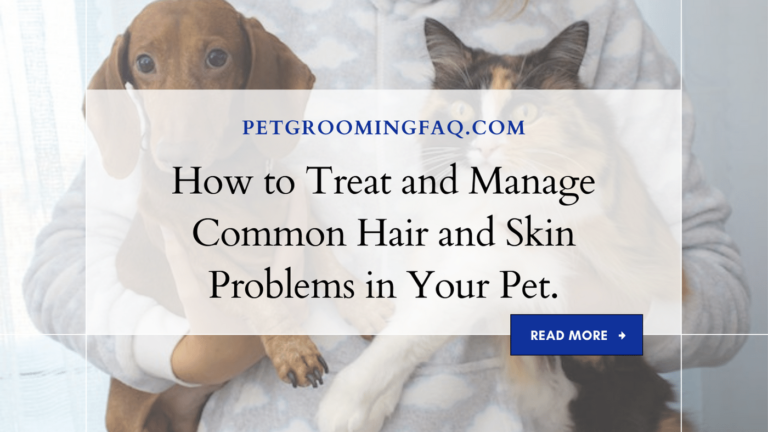

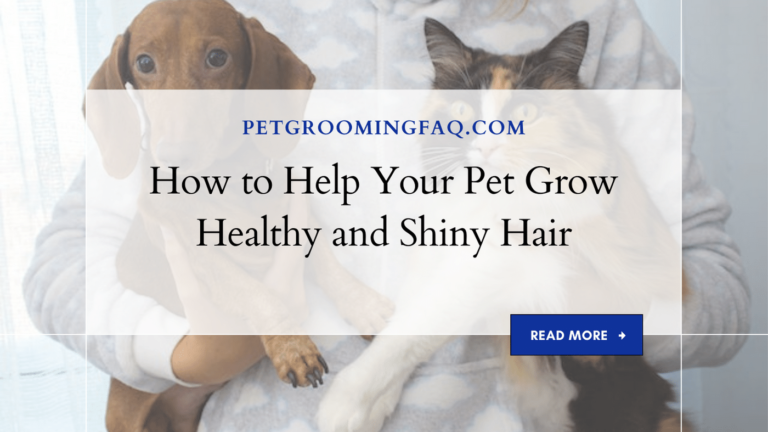
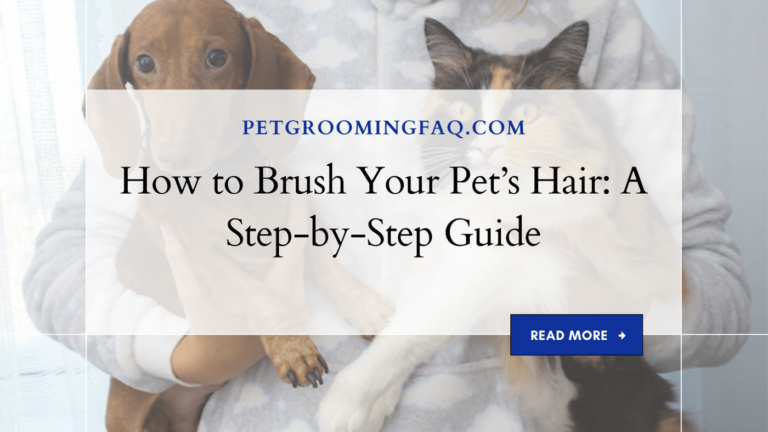
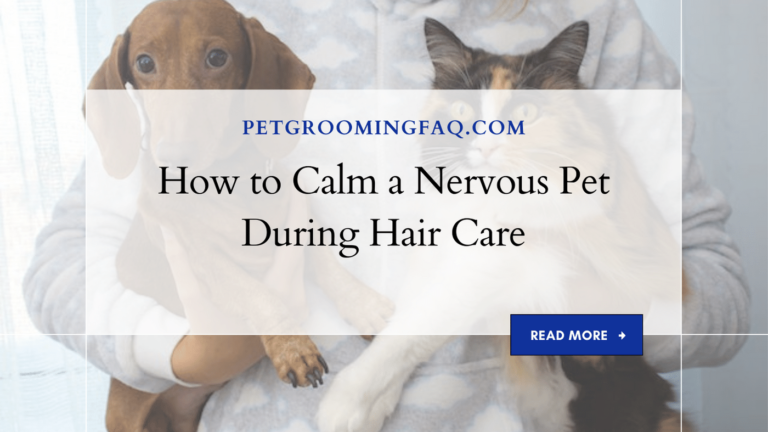
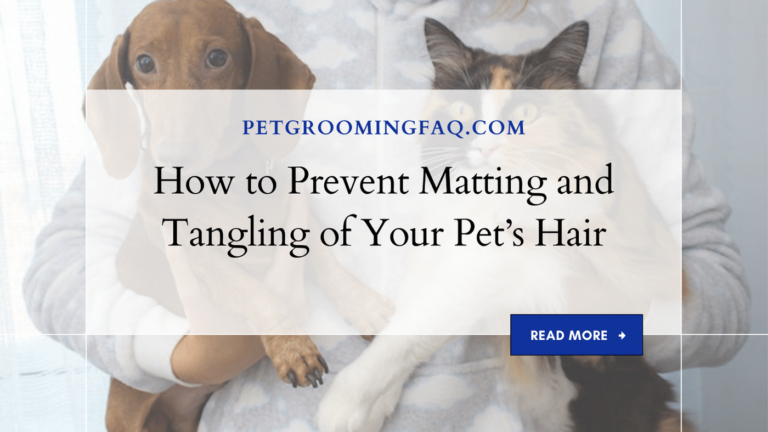
7 Comments